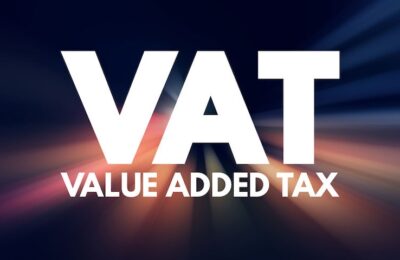Have you ever heard of the Apollo Belvedere? I hadn’t until the other day, when I read this article. It’s an Italian Renaissance bronze statue created some 500 years ago by Pier Jacopo Alari Bonacolsi, otherwise known as Antico. It’s remarkable for being one of the finest bronzes of its period. What’s also interesting is that it has been donated to the nation to settle an Inheritance Tax (IHT) bill. This was made possible by something called the Acceptance in Lieu Scheme.
What is the Acceptance in Lieu scheme?
While I vaguely knew you could donate artworks to settle IHT bills, I’d never heard of the Acceptance in Lieu scheme. So I looked it up.
The scheme has its roots in the Finance Act 1910, which allowed people to give land to the nation in lieu of Estate Duty. The National Trust Act of 1937 made it simpler for country estates to be given to the nation. The Finance Act of 1953 then allowed for the contents of houses to be transferred.
The current Acceptance in Lieu scheme guidelines were set out in the 1980 National Heritage Act. This allocated a guaranteed £10 million per year to make up tax revenue shortfalls arising from objects, land or buildings given to the nation. This sum has since been increased to £20 million. While the National Trust is still a major recipient of items, they are bequeathed to many different institutions across the country.
What items are accepted?
Essentially, if you have an IHT bill you can pay it by giving certain things to the nation. The types of property that are accepted are:
- Objects of major importance because of their national, scientific, historic or artistic interest
- Objects associated with important historic buildings in public ownership, such as National Trust properties
- Land or buildings that are important to the national heritage
How does the Acceptance in Lieu scheme work?
If you face an IHT bill, you can offer assets to settle part or all of that liability. You first make an offer of items to HMRC. If the item(s) meet the basic criteria of the scheme, HMRC will refer it to the AiL panel of the Arts Council or (for manuscripts) the Historical Manuscripts Commissioner at The National Archives.
The relevant panel then recommends whether the item(s) should be accepted and, if so, the value they should be accepted at. The recommendation is given to the Culture Secretary or the appropriate minister in the devolved administrations. They then decide whether to recommend whether HMRC should accept the offer. The relevant minister will also decide which public institution or charity should receive the item(s).
Benefits of using the scheme
There are benefits to using the scheme that go beyond helping you to settle an IHT bill. To begin with, you can benefit from a greater proportion of an item’s value. The Arts Council explains this as follows:
“If, in order to settle a tax liability, an estate sells an object valued at £100,000 on the open market, inheritance tax is generally payable at a rate of 40% and the estate receives £60,000. If the same object is offered in lieu, 25% of the tax that would have been payable is remitted to the estate, with the result that the object has a tax settlement value of £70,000. An object is, therefore, worth around 17% more if it is offered in lieu of tax than if it is sold on the open market at the same price.”
While HMRC can’t ‘give change’ if an item is worth more than the IHT bill, the public body that is allocated the item may be able to pay the difference. In addition, items don’t have to come from the estate as the IHT bill applies to. You can offer an item that belongs to you, not the deceased person.
Lastly, if an offered object from an estate is accepted, it becomes provisionally exempt from IHT. This reduces the Inheritance Tax bill further.
How do I make an offer?
If you want to make an offer under the Acceptance in Lieu scheme, you can download guidelines here. You should send your offer to:
Wealthy and Mid-sized Business Compliance
HM Revenue and Customs
SO842
HeritageTeam (Ferrers House)
Central Mail Unit
Newcastle NE98 1ZZ
If you need any assistance with Inheritance Tax, remember that our expert accountants are here to help. Get in touch today if you need any advice.
About Ben Locker
Ben Locker is a copywriter who specialises in business-to-business marketing, writing about everything from software and accountancy to construction and power tools. He co-founded the Professional Copywriters’ Network, the UK’s association for commercial writers, and is named in Direct Marketing Association research as ‘one of the copywriters who copywriters rate’.
More posts by Ben Locker











